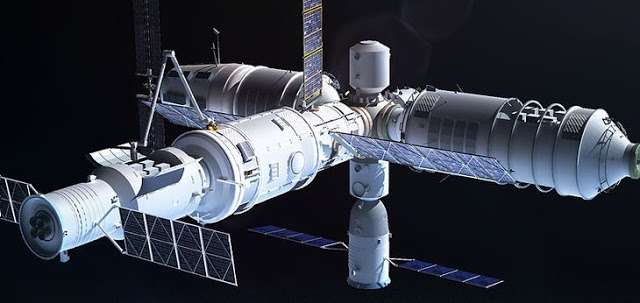China and the U.N. agree to help developing countries get access to space

Last month, China signed an agreement with the United Nations Office for Outer Space Affairs (UNOOSA) to open the country's future space station for science experiments and astronauts from U.N. member states. According to a spokesperson from the China Manned Space Agency (CMSA), this cooperation heralds better accessibility to space for developing countries.
"The agreement will provide exciting opportunities to further build the space capacity of developing countries and increase awareness of the benefits human space technology can bring to humankind, and thus to promote the achievement of the sustainable development goals," Aimin Niu, CMSA spokesperson, told Astrowatch.net.
In particular, this agreement means that UNOOSA and CMSA will work together to give U.N. member states an opportunity to conduct space experiments onboard China's future space station, as well as to provide flight opportunities for astronauts and payload engineers.
"China is willing to provide training services for foreign astronauts. Funding support to their flight missions will be negotiated among and shared by partners," Niu said.
The station, named Tiangong 3 (meaning "Heavenly Palace 3" in Chinese), is currently under development and is expected to be operational around 2022. It will consist of a core module and two experimental modules, and can be expanded further. The modules are scheduled to be sent to space in the 2020–2022 time frame.
Tiangong 3 is will be visited by crewed Shenzhou vehicles as well as Tianzhou cargo vessels. It will be capable of accommodating three full-time astronauts and up to six during rotation periods. The station will also house the country's future Xuntian space telescope.
"Featuring advanced technology and multi-purposed onboard facilities, the station could provide opportunities for U.N. member states to conduct microgravity experiments on physics, biology, and life science as well as Earth observation," Niu said.
Both sides also agreed to promote international cooperation in human space flight and other space activities.
According to Niu, the implementation of the agreement will provide opportunities to build capabilities in developing countries under the framework of UNOOSA's Human Space Technology Initiative (HSTI), and in line with both the thematic priority of UNISPACE+50 on "Capacity-building for the 21st Century" and the High Level Forum pillar on "Space Accessibility."
The CMSA-UNOOSA agreement also opens doors to further multinational cooperation on space activities. The China Manned Space Agency hopes for broadened collaboration with other countries and international organizations under the framework of the agreement, on the principle of peaceful uses of outer space, equality and mutual benefit, and joint development.
"We believe that the implementation of the agreements will definitely promote international cooperation on space exploration, and create opportunities for United Nations member states, particularly developing countries, to take part in, and benefit from, the utilization of China's space station," CMSA Deputy Director General Wu Ping, said in June.
Source: Astrowatch.net




















